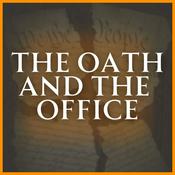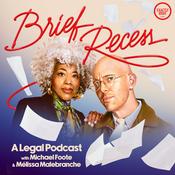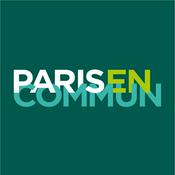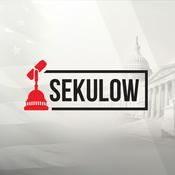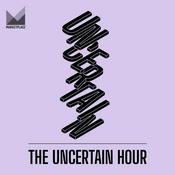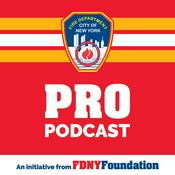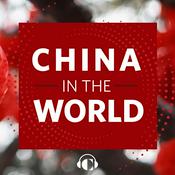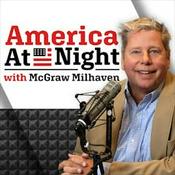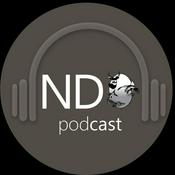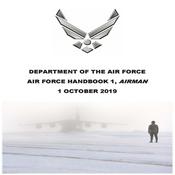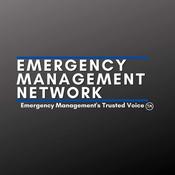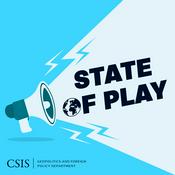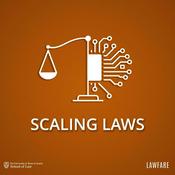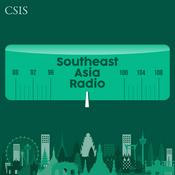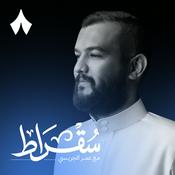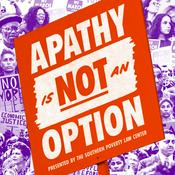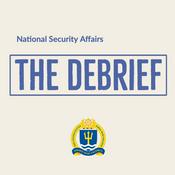34 episodes

#34 - LTC(R) Bill Woods
12/19/2025 | 2h 10 mins.
In this episode of the Foreign Area Officer Podcast, host Michael Hill interviews retired Lieutenant Colonel Bill Woods, an Eastern European FAO and current instructor at the Joint Military Attaché School (JMAS). LTC Woods shares his experiences and challenges faced during his career, including the undervaluation of FAOs in the past, his roles in Naples, Cyprus, and London, and the importance of building relationships in diplomatic and military contexts. The discussion also touches on the practical aspects of being an FAO, the impact of critical thinking and current doctrinal knowledge, and the unique experiences and opportunities presented by serving at JMAS. Bill reflects on the importance of having fun in the job and staying engaged in current assignments while planning for future roles. 00:00 Introduction and Disclaimer 00:42 Welcome and Guest Introduction 00:59 Early Experiences as a FAO 02:13 Challenging Assignments and Career Growth 04:44 Political Advisor Role in Baghdad 07:47 NATO Advisor Experience 23:22 Greek Language and Cultural Immersion 41:39 Access and Opportunities in Foreign Military Education 43:06 Challenges and Misconceptions in Greek War College 44:19 Thesis Writing and Overcoming Language Barriers 44:58 Navigating Cultural and Academic Expectations 45:33 Ethical Dilemmas and Academic Integrity 46:31 Building Relationships and Gaining Respect 47:25 Experiences and Reflections on Military Assignments 49:45 The Importance of Fitting In and Building Trust 51:29 Protocol and Respect in International Military Relations 54:33 Career Path and Assignments in Military Diplomacy 55:59 Navigating the Attache Service and Career Challenges 57:54 The Role of FAOs in Multinational Operations 01:00:25 Balancing Operational Knowledge and Diplomatic Skills 01:07:31 The Value of War College and Continuous Learning 01:20:02 The Future of FAOs in a Changing Military Landscape 01:22:39 Experiences and Challenges in Cyprus 01:27:11 Minister's Support and Explosive Seizure 01:28:06 Meeting the Minister of Defense 01:28:59 The Explosion and Its Aftermath 01:30:14 Improving Relationships Post-Explosion 01:33:44 Challenges and Strategies in Diplomatic Relations 01:42:24 Reflections on Career and FAO Experiences 01:53:13 Working at the Joint Military Attaché School (JMAS) 01:58:28 Advice for Future FAOs and Instructors 02:08:22 Final Thoughts and Farewell

#33 - LTC(P) Wes Chaney
11/07/2025 | 1h 34 mins.
In this episode I’m happy to welcome back LTC(P) Wes Chaney, US Army AFRICOM FAO. Wes shares his journey in establishing the Army Foreign Area Officer Association and discusses his first book, which delves into his experiences as a security cooperation officer in Africa. The conversation covers a variety of topics including the creation of his Africa OSC blog, the unique challenges faced by FAOs, the importance of mentorship, and the activities of the Army FAO Association. Wes also provides invaluable advice on managing expectations, senior leader engagements, and the specific 'shoulds' (don’t be that guy!)and 'traps' FAOs should be aware of. The episode is a goldmine of information for both current and aspiring FAOs, offering practical tips and reflective anecdotes from Wes's extensive career. 00:00 Introduction and Disclaimers 00:40 Welcoming the Guest: Lt. Col. Wes Cheney 01:13 The Birth of the Africa OSC Blog 04:12 Challenges and Realizations in Blogging 06:53 From Blog to Book: The Journey 07:31 Publishing Hurdles and Success 08:59 Content and Structure of the Book 10:38 Practical Advice for Security Cooperation Officers 14:54 The Importance of Adaptability and Learning 15:42 Travel Tips and Cultural Insights 40:21 The Should List: Dos and Don'ts for SCOs 47:36 Understanding Your Role and Building Consensus 48:36 Common Pitfalls in Security Cooperation 49:50 The African Love Traps and Other Hazards 50:48 Misuse of Government Resources 51:12 Managing Health and Stress 01:06:00 The Importance of Senior Leader Engagements 01:16:22 Managing Expectations and Avoiding False Promises 01:22:43 The Army FAO Association: Achievements and Future Plans 01:28:31 The Importance of Mentorship in FAO Careers

#32 - MAJ(P) Jacob Myers
9/12/2025 | 2h 2 mins.
Meet MAJ(P) Promotable Jacob Myers, currently serving at the Military Advising Training Academy (MATA) at Fort Benning, Georgia. Our discussion covers the purpose and function of MATA, the development and training of military advisors, and the history and evolution of Security Force Assistance Brigades (SFABs). Myers elaborates on his experience in Latvia, the challenges of building rapport and training in a foreign country, and the rapidly changing dynamics in Eastern Europe following Russia's invasion of Ukraine. We also touch on FAO professional development, the importance of language skills, and the valuable interactions and learning opportunities throughout a FAO’s career. Books Discussed: Between Two Giants, Brit Batar The Russians, Hedrick Smith Kiril Yaskov, The Last Ring Bearer 00:00 Introduction and Disclaimers 00:45 Meet Major Promotable Jacob Myers 01:11 Understanding the Military Advising Training Academy (MATA) 02:29 History and Evolution of Security Force Assistance Brigades (SFABs) 06:53 Training and Deployment of Military Advisors 10:22 Challenges and Realities of Military Advising 14:05 Combat Advisor Training Course (CATC) Overview 19:14 Practical Training and Exercises 28:50 Expanding Training to Joint Forces and Foreign Partners 35:25 The Role of FAOs in SFABs 39:52 Personal Experience and Future Aspirations 43:51 Understanding the FAO Roles and Responsibilities 46:02 Navigating Challenges in Latvia During COVID-19 47:20 Impact of Russia's Invasion of Ukraine on Latvia 51:02 Strengthening US-Latvia Defense Relations 01:10:07 Language and Cultural Dynamics in Latvia 01:20:21 Jacob's Journey: From Basic Training to FAO Program 01:21:35 Joining the National Guard and Pursuing Active Duty 01:21:58 Transition to Active Duty and Deployment to Afghanistan 01:23:02 Experiences in Afghanistan and Promotion to Captain 01:25:20 Pentagon Assignment and Introduction to FAO 01:26:14 Discovering the FAO Program and Early Influences 01:29:58 Training and Assignments as a FAO 01:30:42 Language Training and Family Experiences 01:32:27 Marshall Center and Regional Travels 01:42:35 Importance of Building Relationships and Staying Informed 01:47:49 Final Thoughts and Advice for FAOs

#31 - COL(R) JP Gresh
8/08/2025 | 1h 45 mins.
What crisis was central to your experience working at a U.S. embassy abroad, for better or worse? Join me in a discussion with COL(R) JP Gresh to discuss his experiences in Russia, Ukraine, and the Balkans. The conversation highlights key moments such as the 2013-2014 Ukraine crisis, the challenges of security cooperation in Estonia, and the complexities of working in Russia. Additionally, Gresh shares insights into balancing professional and personal life with a spouse in the Department of State, and offers advice for future FAOs on training, career growth, and the importance of adaptability and maintaining strong interagency relationships. COL(R) Grech also serves as the Co-Editor-in-Chief of the FAOA Journal. Books/Organizations Discussed Black Swan, Nassim Nicholas Taleb All the Kremlin’s Men, Mikhail Zygar Between Two Fires, Joshua Yaffa Nothing Is True and Everything Is Possible, Peter Pomerantsev FPRI (Foreign Policy Research Institute), www.fpri.org FAOA Journal, www.faoajournal.substack.com 00:00 Introduction and Disclaimers 00:46 Meet Colonel JP Gresh 01:33 Early Military Career 02:51 Discovering the FAO Path 03:51 Experiences in Germany and the Balkans 05:52 Reflections on Iraq 10:37 Ukraine: First FAO Utilization Tour 13:47 The 2014 Ukrainian Crisis 15:57 US-Ukraine Military Relations 19:52 Strategic Insights on Russia and NATO 29:44 Lessons from UCOM and Security Cooperation 50:54 Balancing Dual Careers in the FAO World 54:14 Reflecting on Professional Challenges and Lessons Learned 56:44 Navigating a Tandem Career in the Department of State 57:19 Insights on Managing Dual Professional Careers 59:33 Experiences and Challenges in Russia 01:01:10 The Complex Relationship Between the U.S. and Russia 01:05:48 Living and Working in Moscow 01:08:54 Surveillance and Daily Life in Moscow 01:12:46 Diplomatic Restrictions and Challenges 01:18:27 Family Life and Safety in Russia 01:23:33 Post-Retirement and Contributions to the FAO Community 01:28:28 Reflections on FAO Training and Career 01:44:22 Final Thoughts and Parting Advice

#30 - Julie and CAPT(R) Tully
7/18/2025 | 1h 52 mins.
In this episode of the Foreign Area Officer Podcast, I interview Julie Tully and her husband U.S. Navy CAPT(R) John Tulley. We discuss Julie's transition from a cowgirl in Northern California to a 'nomadic Navy spouse' and the dynamic journey from her career in agriculture to becoming a Foreign Area Officer (FAO) spouse, living and working in Europe and Africa for fifteen consecutive years. The conversation delves into the couple’s experiences living in Cameroon, Nigeria, and Djibouti and the impact of their roles there. They touch on memorable challenges, the importance of self-reliance, and the significant contributions spouses make to the FAO mission. Julie also shares the inspiration and stories behind her book, 'Dispatches from the Cowgirl,' offering a deeper look into the FAO lifestyle and its challenges and rewards. Learn More about Julie’s work at www.JulieTullyWriter.com Books Discussed: Dispatches of a Cowgirl, by Julie Tully Broadway in Benghazi, by Anna Linvill Out of Africa, by Isak Dinesen (Karen Blixen) 00:00 Introduction and Disclaimers 00:45 Meet the Guests: John and Julie Tulley 01:19 Julie's Journey: From Cowgirl to Navy Spouse 03:37 Life on the Ranch and Transition to FAO 04:55 The FAO Lifestyle: Challenges and Adaptations 14:11 John's Naval Academy and Submarine Experience 19:16 Discovering the FAO Career Path 22:07 Julie's Perspective: Public Relations and FAO Life 25:46 Adventures and Challenges in Africa 34:16 The Importance of Teamwork in FAO Assignments 43:10 A Hospital Emergency Room in Nigeria 57:04 The Commissary Conundrum 59:10 Internet Surprises in Nigeria 59:47 Defining Home Across Continents 01:09:18 Experiencing Local Cultures Through Staff 01:34:19 Honoring a Fallen Hero in Djibouti 01:49:14 Reflections on the FAO Life
More Government podcasts
Trending Government podcasts
About The Foreign Area Officer Podcast
Listen to The Foreign Area Officer Podcast, The Oath and The Office and many other podcasts from around the world with the radio.net app
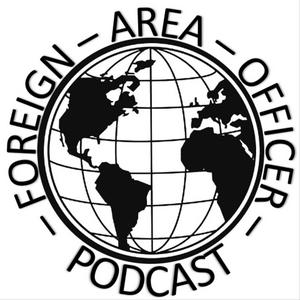
Get the free radio.net app
- Stations and podcasts to bookmark
- Stream via Wi-Fi or Bluetooth
- Supports Carplay & Android Auto
- Many other app features
Get the free radio.net app
- Stations and podcasts to bookmark
- Stream via Wi-Fi or Bluetooth
- Supports Carplay & Android Auto
- Many other app features


The Foreign Area Officer Podcast
download the app,
start listening.
